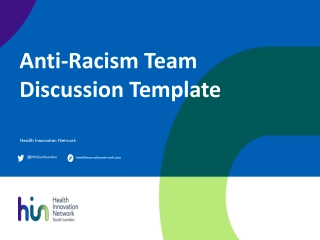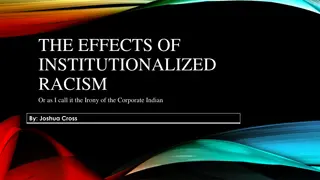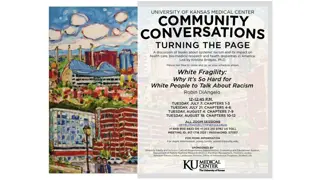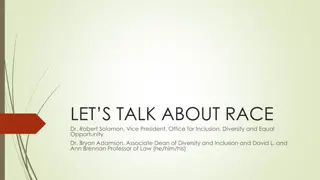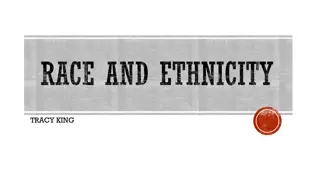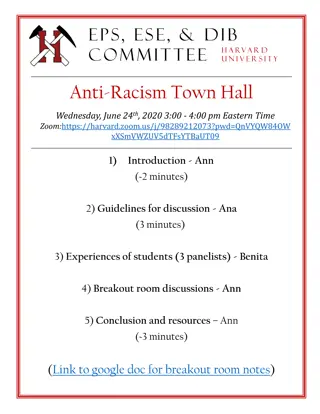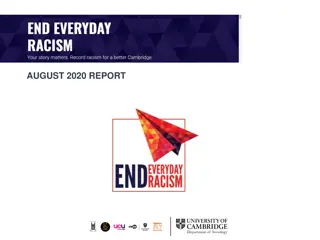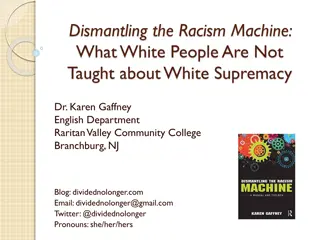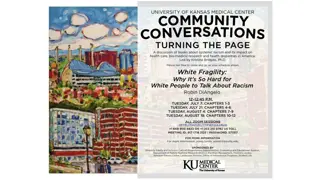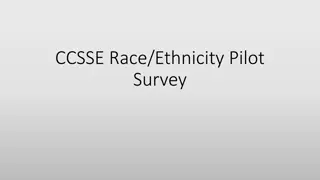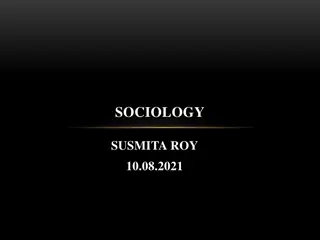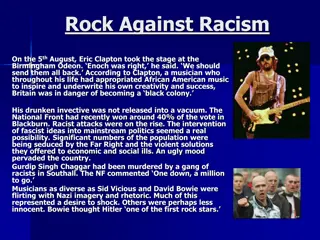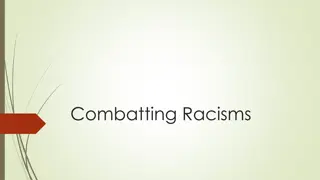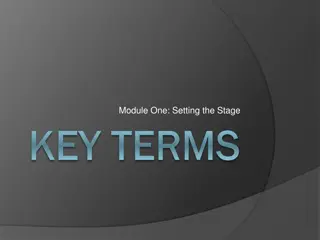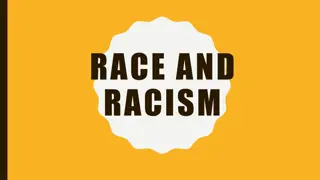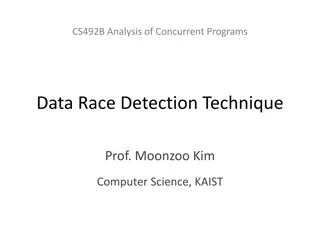
Race and Anti-Racism: Building a Community of Care
Explore the concepts of race as a social construct and the importance of anti-racism in Module 2 of Understanding Identity & Intersectionality. Reflect on your comfort level discussing race and racism, and consider the difference between being not-racist and anti-racist through insightful quotes by Ibram X. Kendi and Desmond Cole.
Download Presentation

Please find below an Image/Link to download the presentation.
The content on the website is provided AS IS for your information and personal use only. It may not be sold, licensed, or shared on other websites without obtaining consent from the author. If you encounter any issues during the download, it is possible that the publisher has removed the file from their server.
You are allowed to download the files provided on this website for personal or commercial use, subject to the condition that they are used lawfully. All files are the property of their respective owners.
The content on the website is provided AS IS for your information and personal use only. It may not be sold, licensed, or shared on other websites without obtaining consent from the author.
E N D
Presentation Transcript
12. What is Race? What is Anti-racism? Module 2 Understanding Identity & Intersectionality (Secondary) BUILDING A COMMUNITY OF CARE
Learning Goal We are learning about race as a social construct and the difference between being racist and anti- racist. BUILDING A COMMUNITY OF CARE
Student Pre-reflection On a scale of 0-5, how comfortable are you talking about race? Explain. On a scale of 0-5, how comfortable are you talking about racism? Explain. 0 = I would rather not talk about race/racism. 1 = I am very uncomfortable talking about race/racism. 2 = I am usually uncomfortable talking about race/racism. 3 = I am sometimes uncomfortable talking about race/racism. 4 = I am usually comfortable talking about race/racism. 5 = I am very comfortable talking about race/racism BUILDING A COMMUNITY OF CARE
What do you think this quote means... The good news is that racist and antiracist are not fixed identities. We can be a racist one minute and an antiracist the next. What we say about race, what we do about race, in each moment, determines what -- not who -- we are. Ibram X. Kendi, How to Be an Antiracist BUILDING A COMMUNITY OF CARE
What do you think this quote means... We cannot avoid conversation about race with the feeble excuse that we are not racist. The sooner we name and acknowledge anti-Black racism, the sooner we can eliminate it. - Desmond Cole BUILDING A COMMUNITY OF CARE
What do you think is the difference between being not-racist and being anti-racist ? BUILDING A COMMUNITY OF CARE
Compare your written response to the one below. What points are similar? What points are different? When we choose to be antiracist, we become actively conscious about race and racism and take actions to end racial inequities in our daily lives. Being antiracist is believing that racism is everyone s problem, and we all have a role to play in stopping it. BUILDING A COMMUNITY OF CARE
Race: Refers to the categories into which society places individuals on the basis of physical characteristics (such as skin color, hair type, facial form and eye shape). It is now widely accepted that this classification system was in fact created for social and political reasons. What are some social and/or political reasons for classifying people? BUILDING A COMMUNITY OF CARE
Journal or Discussion Prompts The contrast is between racist and anti-racist" Each of us should be striving to be anti-racist" When someone supports policies that yield and create racial equity, that s being an anti-racist. What we re doing in each moment determines who and what we are in each moment...people are changing from moment to moment BUILDING A COMMUNITY OF CARE
Structural/systemic Racism: Structural/systemic Racism: The normalization and legitimization of an array of dynamics historical, cultural, institutional and interpersonal that routinely advantage whites while producing cumulative and chronic adverse outcomes for people of color. BUILDING A COMMUNITY OF CARE
I Am A Person I Am A Person While watching the video, think about the following questions: What examples of racism in Canada can you identify? What examples of systemic racism are seen in the video? BUILDING A COMMUNITY OF CARE
Social media posts from the video you might want to discuss: I m not racist but... You people that come here... You want the job, take off the hijab You should cut off your turban. I wasn t there. Why should I apologize for the past? Go back where you came from I don t see colour. It s ancient history. Get over it. It s not my problem. Why should I care? BUILDING A COMMUNITY OF CARE
Racism: Racism: Why should I care? Why should I care? Create an anti-racist response that you can share with the class. BUILDING A COMMUNITY OF CARE
Student Post-Reflection What can I do in my daily life to be an anti-racist? BUILDING A COMMUNITY OF CARE

